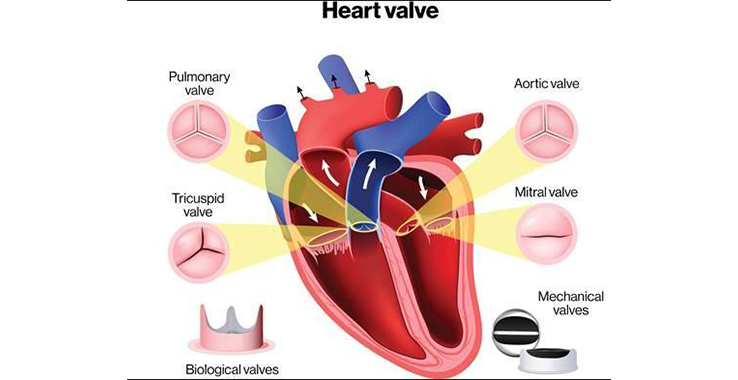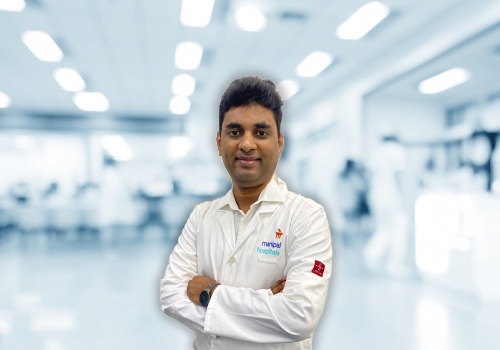What are the criteria for high-risk patients? (Indications for TMvR with MitraClip™)
For treatment of primary mitral valve regurgitation, TMvR is indicated in:
-
Individuals with progressive age who cannot sustain open-heart surgery
-
Individuals with underlying comorbidities are ruled out for open heart surgery
-
Individuals with a hostile chest or a chest cavity with features that may compromise visibility and access to open heart surgery are challenging due to anatomic abnormalities, a heavily calcified aorta (also called porcelain aorta), fluid buildup in the chest cavity (also called hydrothorax or pleural effusion), lung damage, scarring due to previous surgery, or radiation damage.
For the treatment of secondary mitral valve regurgitation, TMvR is indicated in:
-
Individuals with moderate-to-severe symptomatic MR where no adequate symptom relief has been achieved despite maximal medical intervention as per the guidance.
-
Individuals whose heart’s pumping capacity to fill the main heart chamber with blood is reduced by up to 20% and 50% and the main chamber of the heart is not overly enlarged.
-
Individuals are evaluated by a multidisciplinary team, and TMvR is determined to be the best treatment.
Indications for Mitral Valve Regurgitation?
Mitral valve regurgitation usually causes mild symptoms that progress gradually. The symptoms include
-
A heart murmur (an unusual heart sound detected by your doctor during routine examination)
-
Cough
-
Dizziness or light-headedness
-
Constant fatigue
-
Dyspnoea, or shortness of breath that increases with activity and when lying down
-
Palpitations, or the feeling of a rapid heartbeat
What happens if Mitral Valve Regurgitation is left untreated?
If left untreated, mitral valve regurgitation might lead to:
-
Atrial fibrillation (a type of irregularity in your heart rhythm)
-
Clot formation in the heart that may travel to the lungs or brain causing serious problems such as pulmonary hypertension or stroke
-
Heart failure on the right side of your heart
What is the treatment of Mitral Valve Regurgitation?
Mitral valve regurgitation may either be primary or secondary.
Primary mitral valve regurgitation is also called Degenerative Mitral Regurgitation. It is caused due to
-
Structural damage to the valve due to infection, valve degeneration, congenital malformation, or due to the normal ageing process.
The secondary mitral valve regurgitation is also called Functional Mitral Regurgitation. In this condition, the valve is structurally normal, but it is unable to function normally due to an enlarged heart, damage to the heart muscle, or a heart attack. Medications are not of great help in treating mitral valve regurgitation; they can help reduce the symptoms but cannot correct the valve. Hence, surgical correction of the valve (repair or replacement of the valve) is the recommended treatment.
Mitral valve repair or replacement is usually done by an open-heart surgery. However, in high-risk patients, a Transcatheter Mitral Valve Repair with MitraClip™ is recommended instead of open-heart surgery.
Risks and complications of TMvR with MitraClip™?
-
Active endocarditis (inflammation of the inner lining of heart chambers)
-
Presence of prosthetic heart valves
-
Patients with very large mitral annulus (the ring-like outer lining of the mitral valve)
-
Calcification of the leaflets of the mitral valve
Checklist: Preparing for TMvR with MitraClip™?
In the days before your procedure, it is important that you:
-
Follow your doctor’s instructions and take all your prescribed medications.
-
Tell your doctor if you are taking any other medications. Your doctor might also ask you to temporarily stop taking certain medications
-
Tell your doctor about your allergies
What happens during TMvR with MitraClip™?
Like all standard surgical procedures, you will be asked not to eat or drink anything from the previous night of the surgery. The procedure will be performed under general anaesthesia. You will remain sedated throughout the procedure. The procedure generally lasts for about 3 to 4 hours and involves the following steps:
-
A small incision is made in your upper leg (groin region), and a hollow, flexible tube (catheter) will be inserted through a vein to reach your heart
-
The end of the catheter is attached to a clip delivery system which carries the MitraClip ™ Implant to the heart.
-
Your doctor will guide the MitraClip ™ to the mitral valve through e-fluoroscopy (a type of X-ray that delivers radiation to you) and echocardiography (a type of ultrasound to visualize your heart)
-
The MitraClip ™ is implanted at the appropriate position on the mitral valve. The clip facilitates proper closing of the valve leaflets and reduces mitral regurgitation
-
Your doctor will then perform tests to ensure that the Clip is working properly. Once the doctor is confident that the clip is in its correct position and is functioning properly, they will detach the Clip Delivery System.
-
The clip delivery system and the catheter will then be removed from your body, and the incision in your leg will be closed with sutures.
What happens after TMvR with MitraClip™?
-
After the procedure, you will be shifted to the cardiac care unit for you to rest and to recover. While you recover, you will be constantly monitored to ensure that your heart is stable, all vitals are normal, your blood sugar levels are controlled, etc.
-
Once your doctor has ensured you are stable, you will be shifted to the ward or private room for further recovery. Depending on your health condition and recovery, you may have to stay in the hospital for about 2 to 5 days. You will be discharged from the hospital to the care of your cardiologist or family doctor, with instructions to return for follow-up visits.
Recovery after about TMvR with MitraClip™?
-
Follow your doctor’s instructions and take all the prescribed medications regularly. Do not miss the doses, particularly if you have been prescribed blood thinners.
-
Seek medical attention immediately in case you experience shortness of breath that doesn’t get better even after resting; chest pain; numbness in your arms, legs, or face; dizziness; racing or slow heartbeats; increased swelling in your upper and lower limbs; any adverse effects to the prescribed medication, such as rashes, swelling, fever, and extreme fatigue; or a feeling of warmth or fluid draining from the incision site.
-
Avoid strenuous activities or rigorous exercises until your doctor gives clearance during the follow-up visits.
-
If you are scheduled for any other medical or dental procedures, do not forget to notify the doctor about your mitral clip, as you may need antibiotics to avoid potential infections.
Benefits of TMvR (MitraClip Procedure)?
-
Minimally invasive surgery with no incisions, eliminating any pain and scarring. This also ensures a lower blood loss during surgery
-
Faster recovery compared to traditional open-heart surgery allows them to resume normal day-to-day activities.
-
Safe and effective option, making it ideal for high-risk patients who may not be eligible for traditional surgery due to age or other health concerns
-
Improved quality of life reduces symptoms like shortness of breath and fatigue, helping them feel better overall.
-
Improves blood circulation, relieving symptoms and minimizing the chance of a heart attack, thereby improving general health and wellbeing
Why Choose Manipal Hospitals Bangalore for TMvR (MitraClip Procedure)?
Manipal Hospitals is at the forefront of advanced cardiac care, offering the latest minimally invasive treatments like Transcatheter Mitral Valve Repair (TMvR) using the MitraClip system. This innovative, non-surgical procedure offers new hope to patients with severe mitral valve leakage (mitral regurgitation) who may not be suitable candidates for open-heart surgery. With over 30 successful MitraClip procedures performed across its Bangalore units in the past two years, Manipal Hospitals has built a strong reputation for precision, safety, and compassionate care in structural heart interventions. Here’s why patients trust us for TMvR:
-
Advanced Cath Labs & Imaging Guidance – Manipal hospitals Bangalore has state-of-the-art Cath labs equipped with cutting-edge technology that combines high-resolution fluoroscopy and 3D echo imaging for real-time, pinpoint accuracy during clip placement.
-
Highly Skilled Cardiac Care Experts – A multidisciplinary team of highly experienced interventional cardiologists, echocardiographers, cardiac anaesthesiologists, and surgeons collaborates to deliver the safest and most effective care possible.
-
Tailored Patient Assessment and Treatment Protocols – Each case is thoroughly reviewed by a highly skilled cardiac team to assess valve structure, heart function, and overall health before recommending MitraClip as the best option.
-
Quick Recovery & Symptom Relief – Most patients report improved breathing, better energy levels, and enhanced quality of life shortly after the procedure, with minimal downtime.
-
Round-the-Clock Cardiac Emergency Services – The hospital offers a 24/7 cardiac emergency team, always ready to manage sudden heart-related issues, ensuring timely care when it matters the most.
Selecting the best hospital is crucial for the health of your heart and vascular system. Avail the best care for TMvR (MitraClip Procedure) in Bangalore at Manipal Hospitals, where experienced cardiologists, advanced technology and expert care come together.
Meet Our Specialists





